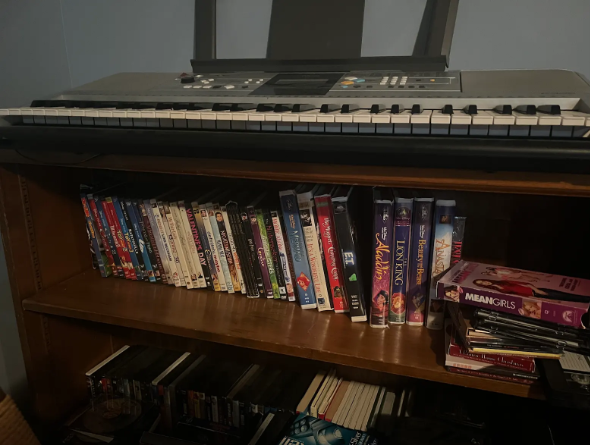Hurricanes often occur during set seasons which vary based on the area of the world in which they occur. The Atlantic hurricane season typically takes place between June 1 and November 30. While hurricane season happens annually, the given impact on society varies each year.
This year’s Atlantic hurricane season is one that will go down in history due to the back-to-back Category 4 hurricanes, Helene and Milton. These weather events caused multiple evacuations throughout Florida and surrounding states, which include Georgia, North Carolina, South Carolina, Tennessee, and Virginia, . Both hurricanes caused massive destruction in their wakes that will take the impacted states months to repair.
“There was a tornado in Palm Beach Gardens, which is the next town over, only about 20 minutes away,” said Rosemary Degn, a student at Palm Beach Atlantic University in West Palm Beach Florida. “It was scary thinking it could have hit us.”
However, the states that were directly impacted by these hurricanes are not the only ones experiencing hardship as a result. During hurricane Helene’s landfall, a North Carolina factory that supplies 60% of the country’s intravenous (IV) fluids was severely damaged due to flooding and mud.
This factory belongs to the company Baxter International, which is a healthcare provider that creates a wide variety of products and is the market leader for IV fluids in the country. Their products primarily help with kidney health; however, they have goods for other kinds of medical conditions as well.
According to Value Analysis Coordinator for Lifebridge Health, a group of five care centers and about 150 other types of health centers within Maryland, Stacy Fisher Hill, there are some other companies that provide these fluids. However, contracts between Lifebridge and Baxter allow for hospitals to get an abundance of IV’s, leading them to be the most used provider.
“We get our fluids from Baxter primarily due to the contract we have in place to buy them from Baxter,” said Fisher Hill.
IV fluids are most commonly used to ensure people are hydrated, but they also help to deliver medication; provide patients with dialysis, which replicates the functions of a kidney; and help to monitor procedures.
While IVs help with all these things, some of its uses are more helpful to others. One example of this is Linganore High School (LHS) junior Natalie Miller, who only has one kidney and therefore needs to stay hydrated.
“I needed IVs because at one point I was extremely dehydrated, and since I only have one kidney, I can not function without water,” said Miller. “It was very necessary for me to have [IV fluids] in order to not develop an infection or kidney stones.”
Due to Baxters’ warehouse being mostly out of commission for the time being, people are not being able to get the fluids as easily. With the limited supply of fluids, hospitals across Maryland have mobilized a supply chain command center, which tracks exactly how much fluid hospitals are able to get from Baxter.
This supply chain has put into effect multiple conservation measures to ensure that the IVs are being used for only the most dire of emergencies. This includes offering fluids by mouth instead of through an IV, running the IVs for a shorter period of time, and taking those who do not desperately need IV fluids off of them.
The supply of these fluids is decreasing by the day, so Maryland hospitals are working to secure IV fluids from other companies. However, this is proving to be difficult, since other hospitals across the country are attempting to do the same.
“They [IVs] are hard to get because everyone’s trying to get IV fluids from alternate companies,” said Fisher Hill.
While Baxter declined an interview request, they continue to provide updates online for when the factory will be back up and running. According to the company, they are working closely with government bureaucratic agencies, such as the Department of Homeland Security, to recover from the losses as quickly and efficiently as possible.
Not only was the factory shutdown due to damages from the hurricanes, but so were the roads leading to it. Consequently, the construction team has had to build a temporary rock bridge, allowing for trucks to get to and from the complex. Baxter states that this temporary bridge has allowed over 855 truckloads of finished goods to be shipped.
Luckily, progress on restoring the factory has gone faster than expected, with the company already restarting their highest throughput IV solution manufacturing line. This manufacturing line alone will help the company produce approximately 50% of the IV fluids they supply to the national market.
Still healthcare workers are worried that the progress is not enough and that going forward there should not be a monopoly on IVs.
“My concern is that we will run out of products to safely take care of our patients,” said Fisher Hill. “Hopefully this is a learning lesson for Baxter.”













